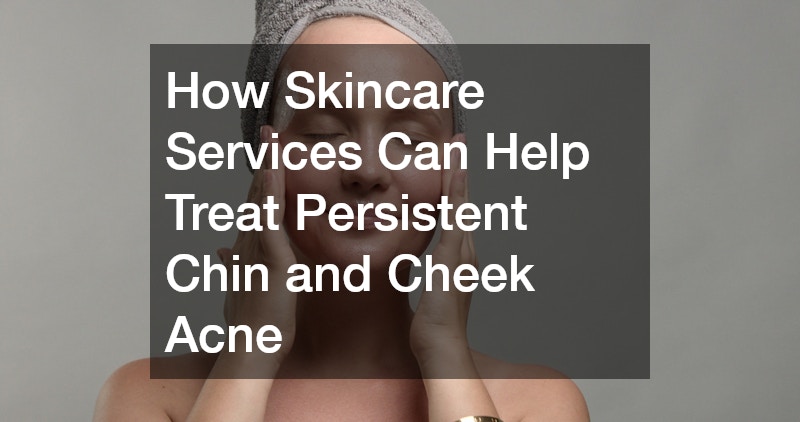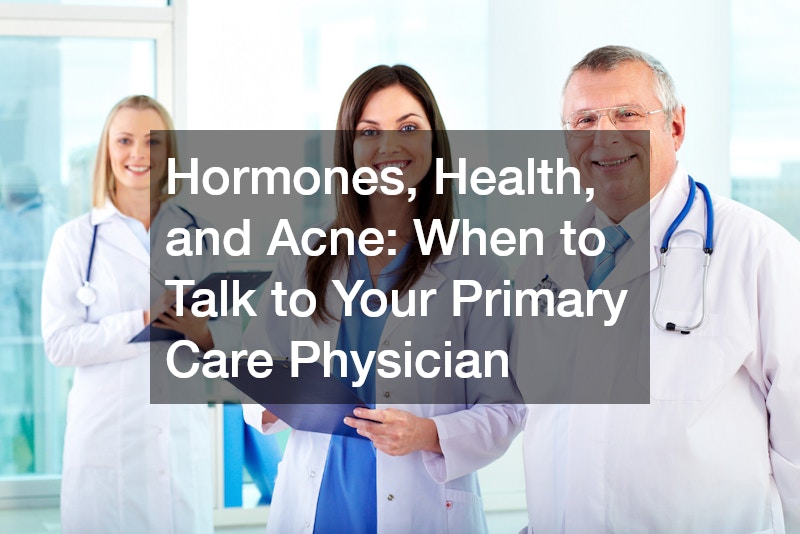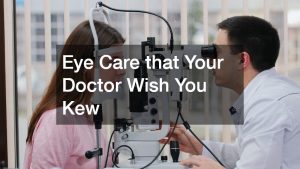
Chin and cheek acne is a common issue that affects many people, disrupting skin clarity and often leading to reduced self-confidence. While it may seem like a purely cosmetic concern, chin and cheek acne can have deeper roots that need to be addressed for effective treatment. This article aims to explore various factors contributing to acne in these areas and offer insights into holistic treatment methods.
The persistence of chin and cheek acne can be both frustrating and complex to tackle, as it may not respond well to conventional treatments. Understanding its root causes is crucial for anyone seeking lasting relief and clearer skin. By diving deep into various effective remedies and lifestyle shifts, we hope to illuminate paths to healthier skin.
This detailed guide will cover everything from skincare solutions and stress management to holistic approaches and the potential impact of pets. Our journey begins with an exploration of the root causes of chin and cheek acne, providing a foundational understanding before delving into treatment methods.
Understanding the Root Causes of Chin and Cheek Acne

The root causes of chin and cheek acne are varied and interconnected, often requiring an in-depth analysis to determine individual triggers. Hormonal fluctuations are one of the most common reasons, particularly in areas like the chin and cheeks which are highly reactive to hormonal changes. It is essential to monitor these changes to better understand their impact on your skin.
Lifestyle factors, including diet, stress, and skincare routines, can also play significant roles in the development of chin and cheek acne. Consuming high-glycemic foods or those rich in dairy can exacerbate acne symptoms. Meanwhile, neglecting proper skin care services can lead to the build-up of dirt and oil, promoting acne formation.
Environmental factors, such as pollution and climate, can further aggravate chin and cheek acne. Exposure to polluted environments without proper skincare protection allows harmful particles to penetrate the skin, leading to inflammation and breakouts. Addressing these root causes requires a multifaceted approach tailored to the individual’s unique skin needs.
How Skincare Services Can Help Treat Persistent Chin and Cheek Acne

Professional skincare services offer a tailored approach to treating persistent chin and cheek acne, often incorporating advanced techniques and products. Visiting a day spa allows individuals to benefit from expert assessments and targeted treatments like chemical peels and microdermabrasion, which can significantly improve skin texture. These services often incorporate the latest in skincare technology and products designed to reduce acne.
In addition to professional treatments, skincare services can educate clients on developing effective at-home routines for managing acne. This guidance often includes product recommendations, lifestyle adjustments, and techniques to properly cleanse and exfoliate the skin, focusing particularly on the chin and cheek areas. By following these customized regimens, individuals can reduce acne flares and enhance their overall skin health.
Moreover, regular visits to skincare professionals provide ongoing support and monitoring, allowing adjustments to be made as the skin progresses. Tracking changes in acne patterns and skin health can lead to more precise treatment strategies. This ongoing partnership aims to achieve clearer skin through both in-spa treatments and daily care at home.
The Link Between Stress and Acne: Why a Day Spa Might Be Your Secret Weapon
There is a well-documented link between stress and acne, with psychological stressors often exacerbating symptoms, particularly on the chin and cheeks. During stressful times, the body increases its production of cortisol, a hormone that can lead to increased oil production in the skin, contributing to acne flare-ups. Managing stress effectively is crucial for maintaining healthier skin.
Visiting a day spa can be an excellent way to alleviate stress and its subsequent impact on skin health. Many spas offer relaxing treatments such as massages, facials, and aromatherapy, which can help lower stress levels and improve one’s mental well-being. These stress-reducing services promote relaxation, enhancing the body’s natural ability to repair and rejuvenate skin.
Incorporating regular visits to a day spa into your routine can serve as a preventative measure against stress-induced acne. By prioritizing relaxation and self-care, individuals can minimize stress triggers, potentially mitigating their detrimental effect on the skin. This approach not only targets the symptoms of acne but also helps address one of its underlying causes.
Holistic Approaches to Acne: When to Consult a Local Holistic Doctor
For those seeking alternative approaches to treating chin and cheek acne, consulting local holistic doctors can offer new perspectives. Holistic medicine emphasizes a comprehensive view of health, considering the individual’s lifestyle, emotional well-being, and physical health. This approach aids in identifying underlying factors contributing to acne beyond the surface-level symptoms.
Local holistic doctors may employ natural remedies such as herbal treatments, dietary adjustments, and stress management techniques aimed at supporting the body’s ability to heal itself. These practitioners often focus on balancing internal systems, such as hormones and digestion, which can significantly impact skin health. Integrating such methods can offer a refreshing complement to traditional acne treatments.
It’s important to approach holistic treatments with an open mind while maintaining realistic expectations. Not all remedies work for everyone, and it may take time to see visible improvements in chin and cheek acne. However, for many, holistic approaches offer a valuable component of a well-rounded skin health strategy.
Nutrition and Acne: Can a Personal Training Program Improve Your Skin?

Nutrition plays an integral role in skin health, with diet directly affecting the severity and occurrence of chin and cheek acne. Consuming a balanced diet rich in vitamins, antioxidants, and omega-3 fatty acids can promote a clearer complexion and reduce inflammation. On the other hand, diets heavy in processed sugars and unhealthy fats may worsen acne symptoms.
Engaging in a personal training program can enhance your nutritional knowledge and physical fitness, which are both beneficial for skin health. Trainers can offer guidance on meal planning, emphasizing foods that support skin vitality and energy levels. Regular exercise, a key component of most personal training programs, also aids in reducing stress and promoting better circulation, contributing to healthier skin.
Yet, it’s important to acknowledge that individual responses to dietary changes vary, and what works for one person’s chin and cheek acne may not work for another. A personalized approach, ideally one that combines a nutritious diet with expert guidance, can help achieve clearer skin over time.
Hormones, Health, and Acne: When to Talk to Your Primary Care Physician

Hormonal imbalances are a common culprit behind persistent chin and cheek acne, particularly during adolescence, pregnancy, and menopause. Changes in hormone levels can lead to increased oil production and subsequent acne breakouts, especially in these facial areas. Gaining a thorough understanding of your hormone health is crucial for effective acne management.
Consulting primary care physicians can offer invaluable insights into how hormone levels might be affecting your acne. These physicians can recommend and conduct tests to evaluate hormone profiles, providing a basis for targeted treatment approaches. Hormonal therapies or medications may be prescribed to help balance hormones and combat acne at its source.
It’s important to maintain open communication with your primary care physician to monitor how treatments are affecting both your health and your skin. Adjustments to prescribed therapies might be necessary, so frequent check-ins can help refine your treatment plan. This partnership aims to identify sustainable solutions for managing chin and cheek acne effectively.
How Dental Health Can Play a Role in Chin and Cheek Acne
Dental health may not be the first consideration when addressing chin and cheek acne, but neglecting oral hygiene can correlate with skin issues. Bacteria and inflammation in the mouth can potentially spread, impacting adjacent areas like the chin and cheeks. Consistent dental checkups are pivotal in preventing these kinds of infections from exacerbating acne.
Regular visits to a local family dentist help in maintaining optimal oral health, reducing the risk of bacteria-driven inflammation affecting facial skin. Proper oral hygiene, including brushing, flossing, and using antibacterial mouthwash, complements these visits and helps minimize acne risk. Addressing oral health can be a surprising yet vital step in an acne management plan.
Moreover, some individuals have reported improving their chin and cheek acne by collaborating with both dental professionals and dermatologists to address shared concerns. This integrated approach ensures that any potential dental health factors contributing to acne are thoroughly examined and managed.
Could Pet Dander Be Contributing to Your Acne?
For animal lovers, it’s worth considering whether pet dander might be contributing to chin and cheek acne. Pets, particularly furry animals, shed dander that can accumulate on skin, leading to clogged pores and acne formation. Ensuring a clean environment where both you and your pets coexist is part of effective skin health maintenance.
Visiting pet groomers regularly can help minimize the amount of dander and fur being spread throughout your home. In addition to grooming, maintaining a clean household includes regular dusting, vacuuming, and utilizing air purifiers to reduce airborne particles. This commitment to cleanliness can substantially decrease the potential for pet-related acne triggers.
It’s essential to note that skin sensitivity varies, and pet dander is not a trigger for everyone. Keeping a diary to track the specific conditions under which your acne worsens can help determine whether pets play a role in your skin health. If so, incremental changes can be made to improve both your skin and living environment.
When Your Environment Affects Your Skin
Environmental factors such as pollution, humidity, and indoor air quality can significantly impact chin and cheek acne. Polluted air contains particles that can easily penetrate the skin barrier, leading to irritation and acne flare-ups, especially if proper skincare precautions aren’t taken.
Maintaining control over your immediate environment can mitigate these skin challenges. For instance, employing a pest control service ensures that your home remains free from insects that may compound these issues. Similarly, consistent AC repairs and filter replacements can prevent allergens and dust from circulating indoors, promoting better air quality and reducing acne exacerbations.
Combining these environmental controls with a keen awareness of how your environment impacts your skin can create a more skin-friendly living space. These changes, along with a diligent skincare regimen, work synergistically to minimize the negative impact of environmental stressors on the skin.
Building a Skin-Friendly Routine with Help from a Day Spa Professional
Creating a skincare routine focused on treating chin and cheek acne often requires expert input to maximize efficacy and ensure proper care. Collaborating with day spa professionals can offer personalized recommendations and treatments that align well with your skin’s specific needs.
A customized skincare routine may include regular facials designed to target impurities and promote cell rejuvenation, directly benefiting areas prone to acne. A reliable regimen emphasizes consistent hydration and protection, incorporating products that are most beneficial to clients’ specific skin types and conditions.
In addition to recommending products, day spa professionals can coach clients on application techniques and timing, ensuring that each step of their routine maximizes skincare benefits. Frequent consultations ensure that any necessary adjustments to the routine are made promptly, facilitating enduring improvements in skin clarity and health.
Preventing Acne Flares: Daily Habits That May Affect Your Skin
Everyday habits can have a significant impact on the health of your chin and cheek skin, either reducing or exacerbating acne. Maintaining a consistent sleep schedule, for instance, promotes hormonal balance and cellular rejuvenation, both of which are crucial to reducing acne flare-ups.
Hygiene plays an equally important role, with regular cleansing and avoidance of touching the face unnecessarily being key practices. Stress management through techniques like yoga, meditation, or regular exercise, such as that offered in a personal training program, is equally important, helping to prevent stress-induced acne.
Awareness of how these habits affect your skin can empower you to make effective changes, leading to a reduction in acne over time. While these efforts require discipline and consistency, they ultimately facilitate better skin health and personal well-being.
Addressing chin and cheek acne requires a comprehensive understanding of its root causes and an integrated approach to treatment. By considering factors like skincare services, nutritional adjustments, hormone management, and environmental influences, individuals can develop personalized treatment plans that target the underlying issues.
Regular consultations with healthcare professionals, including primary care physicians, local holistic doctors, and dental specialists, provide the necessary support and expertise. Additionally, lifestyle changes related to diet, exercise, and stress management can significantly improve skin health and overall quality of life.
Ultimately, achieving clear skin involves a dedicated commitment to self-care and the willingness to adjust habits and seek professional guidance. With the right resources and determination, managing chin and cheek acne can lead to enhanced self-confidence and lasting skin health.

